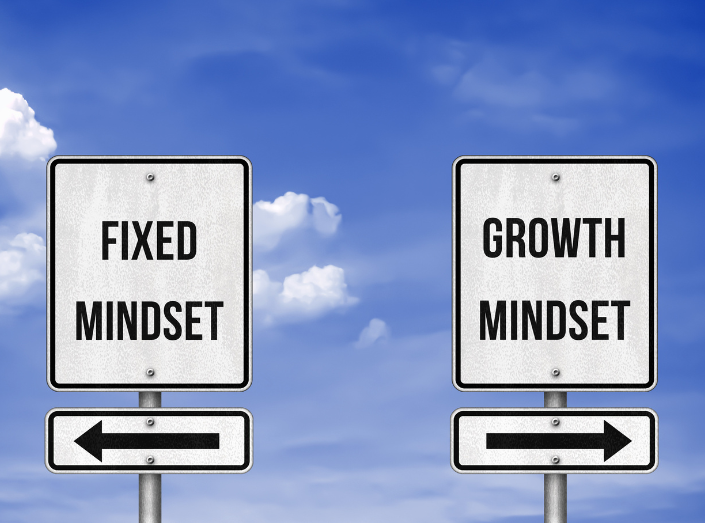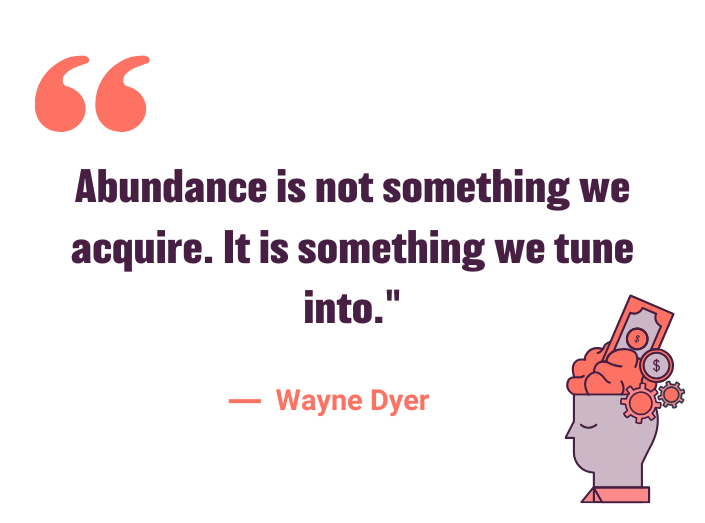What if you could rewrite your entire financial future with just a few small changes? In a world where money influences almost everything, adopting the right habits and mindset could be the key to unlocking your financial potential.
Here’s a surprising fact: 61% of people live paycheck to paycheck. But by shifting how you manage your money, you can break free from that cycle and open doors to opportunities you never imagined!
In this article, we'll explore 15 powerful methods that will show you how to improve money mindset and revolutionise your approach to money—no matter where you are on your financial journey.

Create a Solid Budget
Improving your money situation without a solid plan is nearly impossible— and that plan is a budget! Budgeting isn't about restricting how you spend money; it's about strategically working toward your financial goals.
A budget reveals exactly where your money goes, helping you adjust your money habits and avoid falling into bad money habits and feeling guilty. Before budgeting, I found myself guessing where I overspent, ultimately trapping myself in a negative cycle.
Effective Budgeting Techniques
There are various budgeting methods to explore, such as the zero-based budget or the 50/30/20 rule. The key is to find what resonates with you and commit to it, even when the going gets tough—because it will!
Budgeting apps like YNAB (You Need A Budget) make all the difference to my relationship with money. These tools not only keep you on track but also simplify the process, providing a clearer picture of your financial situation.

Shift Your Mindset Towards Abundance
The biggest transformation came when I viewed budgeting as a way to cultivate a positive money mindset. Instead of focusing on what I couldn't afford, I shifted my perspective to how I could achieve my long-term goals with my budget.
If you often feel like there’s never enough money, a budget can help you transition from a scarcity mindset to an abundance mindset.
Seeing where every dollar goes helps you overcome negative self talk and offers more control over your money story!
Automate Your Savings
Automating your savings is revolutionary for your financial well-being. It’s amazing how much easier saving becomes when you don’t have to think about it!
Automation taps into the psychology of removing decision fatigue, which helps you build a saving money mindset without even realising it. When saving is automatic, you're less likely to skip it and more likely to accomplish your financial goals.
How to Set Up Automatic Transfers
Setting up automatic transfers is super simple. Just choose a specific amount to move from your checking account to your savings or investment accounts each month. Most banks or financial apps, make this process incredibly easy to set up.
Plus, you can adjust the amount whenever needed, so it’s all flexible based on your financial situation!
If you’re looking for the best accounts to automate your savings, consider high-yield savings accounts or Robo-advisors like Wealthfront or Betterment. These options not only help your money grow but also support you in staying committed to your long-term financial goals effortlessly. With these tools in your arsenal, building wealth becomes a more manageable and rewarding journey!
Focus on Debt Repayment
Debt can feel like a heavy weight holding you back from true financial freedom. It drains your ability to save or invest, as you're constantly trying to pay down what you owe. That's why clearing that debt is the first step toward a healthier money mindset and grants you the freedom to focus on your .
Snowball vs. Avalanche Methods for Debt Repayment
When it comes to paying off debt, you’ll often hear about the snowball or avalanche methods. The snowball method focuses on paying off the smallest debts first, giving you that much-needed psychological boost to your money mindset.
The avalanche method, on the other hand, tackles high-interest debts first, which saves you more money in the long run.
Choosing the right approach depends on your personal preferences and what will keep you motivated in the long run.

To maximise either strategy, it’s important that you prioritise high-interest debts, like credit cards. These debts can build up quickly, often leading to even more financial stress. By knocking them out early, you’ll save a significant amount on interest over time, allowing you to shift your focus toward other financial decisions.
Build an Emergency Fund
An emergency fund is your financial safety net—it stops you from spiralling into debt when unexpected expenses arise. Whether it’s medical bills, car repairs, or job loss, having this cushion gives you peace of mind and keeps you from derailing your money goals.
How Much Should You Save for Emergencies?
Experts recommend saving 3 to 6 months' worth of living expenses for emergencies. But don’t let that number overwhelm you! You can start with a smaller goal, like £1,000, and build from there.
The important thing is to start saving consistently, even if it’s just a small amount every month. Each little bit adds up, and it’s better to start small than to not start at all.
To get started, open a separate high-yield savings account and automate a portion of your income into it. You’ll be surprised how quickly it grows once it’s out of sight and out of mind! Set a monthly reminder to review your progress, and celebrate milestones along the way.
Invest in Your Financial Education
One of the best investments you can make is in your financial education. Continuously learning about personal finance helps you make smarter money decisions, improve your money mindset, and ultimately achieve financial freedom. The more you know, the better equipped you are to navigate financial challenges and seize opportunities.
There are plenty of fantastic resources available to deepen your financial knowledge, for instance books like "You Are a Badass at Making Money" by Jen Sincero, which combines motivation with practical advice, or "The Budgeting Habit" by S.J. Scott and Rebecca Livermore for actionable budgeting strategies. Podcasts like"SHEWEALTH Visionista" offers insights on managing money with a female perspective. Online platforms offer courses such as which can keep you updated on the latest in personal finance.
Joining Finance-Focused Communities
Surrounding yourself with like-minded individuals keeps you accountable and motivated. Sharing experiences and financial tips not only broadens your knowledge but also fosters a supportive environment where everyone encourages each other to reach their goals.
Remember, learning doesn’t just happen through books; it’s often through conversations and shared experiences that we truly grow!
Start Investing Early
The Power of Compound Interest
The earlier you start investing, the more you benefit from the magic of compound interest.
Compound interest is the process where your earnings generate their own earnings, exponentially growing your wealth. For example, investing just £100 a month at an average 7% return could grow to over £120,000 in 30 years. This power is why starting early is key to your financial future.
There are several types of investments to explore—stocks, bonds, real estate, and even alternative assets like peer-to-peer lending. You don’t need large sums to begin; you can invest with just a few pounds.
Start small, you can start investing with as little as £5 today. Stay the course, and over time, you’ll see your money grow. Just don’t let fear of the unknown stop you from taking that first step!
Diversify Your Income Streams
Relying on a single income stream can be risky. Having multiple income streams—from a side hustle, rental property, or dividends—not only gives you a backup plan but also speeds up your journey toward financial freedom. A diversified approach makes your financial situation more resilient against setbacks.
Create Passive Income That Works for You
Building passive income through investments like real estate or dividend-paying stocks means your money can keep growing even when you're not actively working.
It's all about finding ways to earn money without constant effort. Real estate and dividend stocks are just two examples that allow you to grow wealth steadily over time.

Managing multiple income streams can feel overwhelming at first, but the payoff is worth it. With careful planning and a clear focus on your financial goals, you can find a balance between side hustles, investments, and other streams to create a solid, flexible foundation for long-term wealth.
Cultivate a Healthy Money Mindset
Your money beliefs have a huge impact on your financial success. If you're stuck in a negative money mindset or battling limiting beliefs, it's time to shift your thinking and embrace a healthy money mindset that supports wealth building.
One way to do this is affirmations and visualisations, which can help reprogram your mind and break through financial blocks. By consistently focusing on positive money affirmations and visualising your success, you can replace a scarcity mindset with an abundance mindset, transforming the way you approach money.
Gratitude and positive thinking are key to this.
By practicing daily gratitude and focusing on positive changes you can make, you strengthen your mindset, making it easier to attract opportunities and build long-term wealth.
Set Long-Term Financial Goals
Setting well-defined financial objectives is essential for staying on track with your financial journey. People who set specific goals are 42% more likely to achieve them than those who don’t, making goal-setting a crucial step toward financial success.
Break Big Goals into Actionable Steps
Achieving big milestones, like buying a house or retiring early, becomes easier when broken into smaller, manageable steps. This strategy not only makes your goals feel more attainable, but also keeps you from feeling overwhelmed.
Another good tip is to use tracking tools such as apps or spreadsheets to measure your progress!
Tracking your steps keeps you motivated, and seeing those little wins can boost your chances of reaching your financial milestones even faster.
Reduce Unnecessary Expenses
A spending audit is a powerful way to discover where your money really goes. It’s surprising how much we spend without noticing, and this simple review can uncover wasteful habits that block financial progress.
Try making small, but effective lifestyle changes, for instance canceling all your unused subscriptions, can result in significant savings over time.
These minor adjustments have a major impact, helping you free up funds for your more important financial objectives.
Focus on Needs, Not Wants
Distinguishing between wants and needs is essential for managing your spending. By cutting unnecessary expenses, you’ll create room for saving, investing, and eliminating debt—key steps to achieving financial freedom.
Build Credit Wisely
A strong credit score can sometimes make or break your financial opportunities. It opens doors to lower interest rates, better loan options, and overall financial security. That's why it's beneficial to understand the basics of credit and how it impacts your future.
To boost your credit score, prioritise timely payments and keep your credit utilisation below 30%.
Avoid maxing out your credit cards and check your score regularly to spot any potential issues before they escalate.
Understanding concepts like credit utilisation, inquiries, and reporting is can help you maintain a healthy credit score, positioning you for better financial opportunities which enhances your financial security.
Master the Art of Negotiation
Negotiation isn’t just for big purchases or salary talks—it’s a valuable skill that can save you money in everyday life. From haggling over your cable bill to requesting a discount, every little savings adds up over time.

The key to successful negotiation is confidence. Don’t be afraid to ask for a better deal—it’s amazing what you can get just by asking! Practice with small negotiations and gradually work your way up to larger discussions to build your confidence.
Whether you’re discussing a salary raise or negotiating a price on a product, assertiveness can turn a standard transaction into a win-win situation.
When you master negotiation, it can be a powerful tool in your financial toolkit!
Review and Adjust Your Financial Plan Regularly
Your financial plan isn’t a one-and-done deal. Life changes—so should your plan.
Whether it's a new job, marriage, or other significant events, it’s important to revisit and tweak your plan. It keeps you flexible and focused!
Reviewing your plan allows you to adjust your savings, investments, and spending habits according to new priorities or financial situations, and tools like financial planning apps can help you stay organised and adjust your strategies as your circumstances change.
Remember, a proactive approach to your financial plan can lead to greater stability and success in achieving your long-term goals.
Understand the Tax Benefits of Saving and Investing
Taking advantage of tax-advantaged accounts like IRAs, 401ks, and HSAs can hugely reduce your tax burden and boost long-term savings. These accounts offer special tax benefits that you can leverage for greater returns.
By strategically investing, you can lower your tax bill through methods—such as using tax deductions, credits, or tax-loss harvesting—can make a huge difference. It’s all about keeping more of your money working for you.
Maximising these benefits ensures you aren’t leaving money on the table and that you’re saving as efficiently as possible.
Remember to stay informed about tax laws and benefits which can empower you to make the most of your financial situation!
Surround Yourself with Financially Savvy People
Who you surround yourself with has a huge impact on your financial success. Being around people who have a positive money mindset can inspire you to adopt healthier financial habits and beliefs.
When you engage with like-minded people, it helps reinforce the idea that financial growth is not just possible, but right within your reach.
Seek out mentors or communities that emphasise personal finance and wealth-building. This could be through local meet-ups, online forums, or social media groups dedicated to financial education and money mindset coaching. These relationships can keep you accountable and give you access to advice and support as you work toward your financial goals.
Finally, creating an accountability system with friends or family members who are financially savvy can make all the difference in staying motivated and consistent. Regular check-ins, goal-setting discussions, or even shared budgeting sessions can help keep you on track and provide a space for you to celebrate milestones along the way!

Revolutionising your approach to money won’t happen overnight, but with these 15 proven methods, you’re closer than ever to achieving financial freedom. Imagine the impact of setting clear goals, building smart money habits, and continually learning—it all adds up.
Start today, and watch your financial world shift for the better. Ready to take charge? Try out these strategies now, and explore more resources to keep your momentum going!
Your brighter financial future starts here.
Discover more
-
Overcoming Limiting Beliefs: A Guide to Changing Your Money Mindset in 2024.
Learn how to change your money mindset and overcome limiting beliefs about money. -
13 Life-Changing Benefits of a Positive Money Mindset
Discover how a positive money mindset can transform your financial future with 13 powerful benefits to help you build wealth and a... -
Is This the Best Money Mindset Course You've Been Searching For? (Spoiler: It Just Might Be)
Discover whether this is the best money mindset course for you! Explore key features to help transform your financial outlook.


